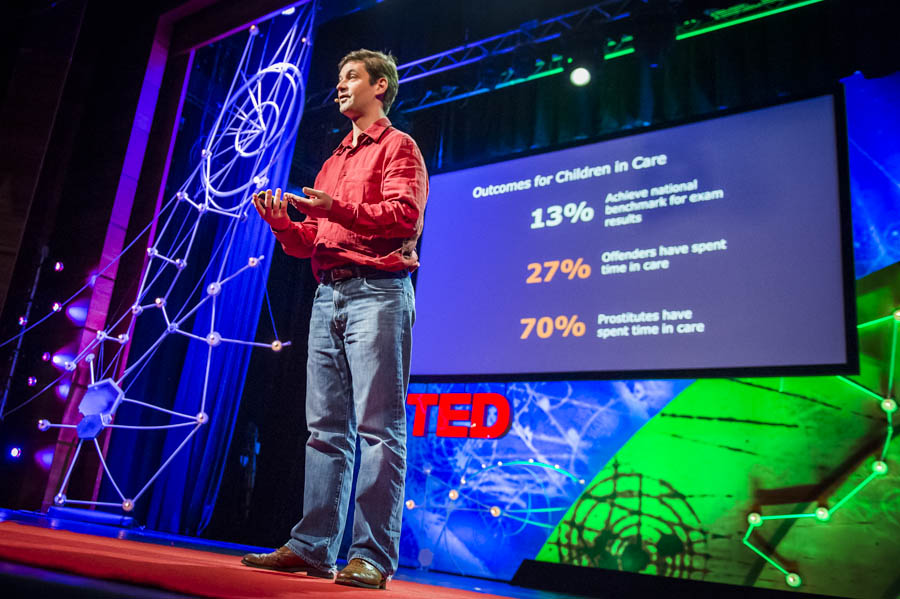Toby Eccles doesn’t believe that the private and public sectors have to operate separately for social change. And he and his colleagues at Social Finance have been working since 2010 to prove it — with a new financial instrument known as social impact bonds. They are, as Eccles says, “not a new intervention, therapy or way of working with kids,” but a new way of doing business for social change.
Consider the problem of recidivism in short-sentence prisoners. In Britain, 63 percent of men who serve short prison sentences are expected to reoffend within a year. In fact, on average these men have committed 43 previous offenses and been to prison seven times before. Eccles and his team approached the Ministry of Justice and asked them: What is it worth to you — economically, in terms of police time, court time, prison time, etc. — to have these men reoffend fewer times? The social benefits are important, but it’s the economic value that makes the case truly compelling and irrefutable, says Eccles. And more important, if Social Finance and the Ministry could agree on how to measure progress, including a dollar value that demonstrates that progress, they could agree on a contract.
In a social impact bond, socially motivated private investors put up funds to pay for services, and the government pays up if progress happens. If the outcome improves and the agreed-upon measures are met, then the public department pays the money saved (from court time, prison time, etc.) back to the investors, who get their money back plus returns. If the outcome doesn’t improve, investors lose their investment — but the government doesn’t. It’s win-win-win: Investors can invest in social change (and Eccles says, “A surprising number of people want to invest in something that produces social good.”) and get a reasonable return; service providers have a chance to increase the evidence for their efficacy and demonstrate the value of their service; and the government benefits because it saves money. And society isn’t doing too badly, either.
Social impact bonds encourage:
1. Innovation: The public sector, which is usually under financial constraints that don’t allow it to innovate, can take bigger risks.
2. Rigor: Since the outcomes are agreed upon from the beginning, data-gathering is built in to the plan.
3. Flexibility: The first draft of a business plan often fails, but these plans are adaptive from the start and change depending on the cause.
4. Partnership: Social impact bonds marry public funds, private funds and socially motivated services.
Social Finance signed a contract with the Ministry of Justice in 2010 to start a program with 3,000 offenders at Peterborough Prison. If they succeed in lowering the conviction rate by 10 percent or more, Social Finance will make money for every conviction saved. As Eccles told me separately, early results will be published tomorrow, June 13. If all goes well, the future of public and private funds for social impact is looking up.
UPDATE: Early results from the middle of the Peterborough prison pilot have been published. — June 13, 2013
Toby Eccles’ talk is now available for viewing. Watch it on TED.com »


Comments (2)
Pingback: Quoted: Toby Eccles on the Peterborough prison pilot | BizBox B2B Social Site
Pingback: June 13 2013 | Young Markets